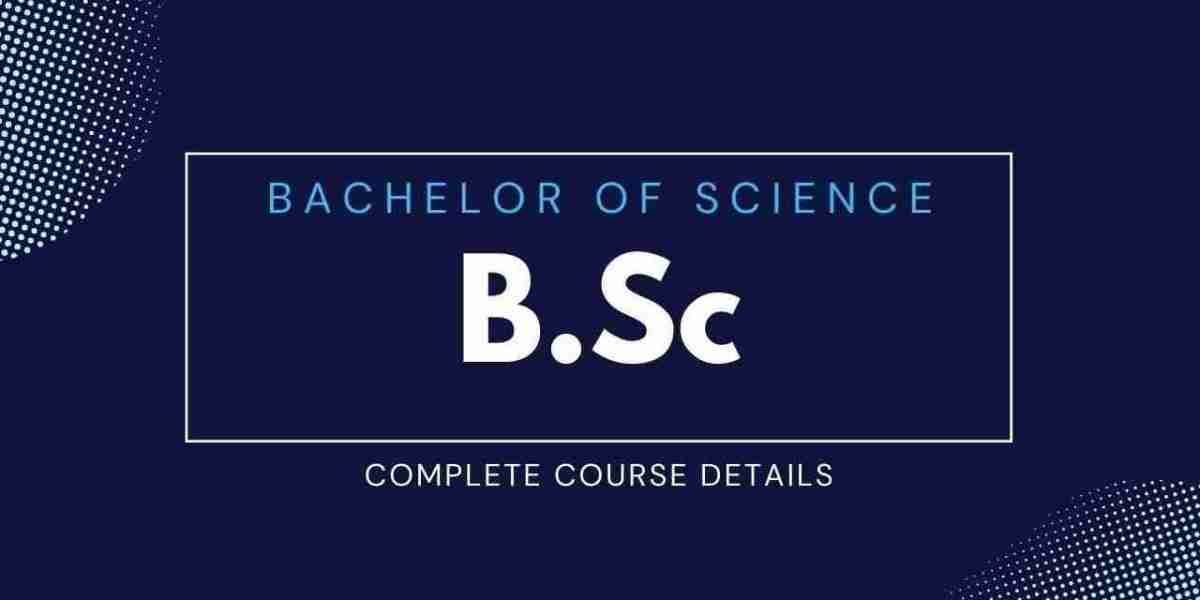Choosing a career path is one of the most important decisions a student can make. For those interested in science, a Bachelor of Science (BSc) degree offers a valuable starting point. The BSc full form is Bachelor of Science, and it is a globally recognized undergraduate program that opens doors to a range of opportunities. This article explores how a BSc degree can shape a student’s journey, detailing its benefits, specializations, and career options.
What is a BSc Degree?
The BSc full form stands for Bachelor of Science, an undergraduate program that typically spans three to four years, depending on the country and the university. A BSc program covers various fields of science and technology, allowing students to choose a specialization that aligns with their interests and career goals. Common areas of focus include Physics, Biology, Chemistry, Computer Science, Environmental Science, and Mathematics.
The Benefits of Pursuing a BSc Degree
1. Comprehensive Education in Science
A BSc degree provides students with in-depth knowledge of their chosen field. The courses are structured to build a solid foundation in both theory and practice. For instance, a BSc in Chemistry will cover chemical reactions, organic compounds, and laboratory techniques, providing a holistic understanding of the subject.
2. Hands-on Learning Experiences
One of the key aspects of a BSc program is its emphasis on practical learning. Students are encouraged to apply what they learn through laboratory work, field research, and real-world projects. These experiences not only reinforce theoretical knowledge but also build practical skills that are essential for future careers.
3. Development of Analytical and Problem-Solving Skills
Science programs are designed to challenge students to think critically and solve problems. Through experiments, data analysis, and research projects, students learn how to approach problems logically and find effective solutions. This skill is valuable in any professional setting.
4. Wide Range of Specializations
A BSc degree offers flexibility in choosing a specialization. Whether a student is interested in exploring the universe through a BSc in Physics or understanding living organisms with a BSc in Biology, there is a wide variety of options. This allows students to tailor their education to their interests and career aspirations.
Specializations in BSc Programs
BSc in Biology
This specialization covers the study of living organisms, their anatomy, physiology, genetics, and interactions with their environment. Graduates can work in healthcare, research, environmental conservation, or pursue further studies in medicine or biotechnology.
BSc in Chemistry
A BSc in Chemistry delves into chemical processes, the properties of substances, and their reactions. Students can work in pharmaceuticals, chemical research, or pursue teaching careers.
BSc in Computer Science
With the tech industry booming, a BSc in Computer Science is a popular choice. It covers programming, algorithms, software development, and data analysis. Graduates often work in IT, cybersecurity, software development, and tech consulting.
BSc in Physics
Physics explores the laws of nature, from subatomic particles to cosmic phenomena. Graduates with a BSc in Physics can work in research, engineering, or technology development.
BSc in Environmental Science
This field focuses on understanding and protecting the environment. Topics such as sustainability, pollution, and natural resource management are covered. Graduates can work in environmental consultancy, policy-making, or conservation.
The Journey of a BSc Student: What to Expect
Year 1: Building the Basics
The first year of a BSc program usually focuses on introductory courses that provide a broad understanding of core scientific principles. Students learn foundational concepts, setting the stage for more specialized courses in subsequent years.
Year 2: Diving Deeper
In the second year, students start to explore their chosen specialization in more depth. They engage in more complex subjects, develop laboratory skills, and participate in projects that require analytical thinking.
Year 3 and Beyond: Specialization and Research
The final years often involve advanced coursework, research projects, and sometimes internships. Students may have the opportunity to work on a thesis or capstone project, which allows them to apply what they’ve learned to a specific area of interest. This is where students truly begin to harness their skills and prepare for their future careers.
Skills Developed During a BSc Program
Analytical Skills
Through lab work, data interpretation, and research projects, BSc students learn to analyze complex information and draw meaningful conclusions. These skills are highly valued in many industries.
Problem-Solving Abilities
BSc programs challenge students to approach problems methodically. Whether it’s solving a complex equation in mathematics or designing an experiment in biology, the ability to tackle challenges efficiently is a key outcome of a BSc education.
Technical Proficiency
Depending on their specialization, students gain technical skills that are directly applicable to their chosen field. For example, a BSc in Computer Science would teach programming languages, while a BSc in Environmental Science would focus on field sampling techniques.
Communication Skills
Presenting findings, writing research papers, and working in groups help students develop strong communication skills. These abilities are essential for working collaboratively and presenting information clearly in any job.
Career Opportunities After a BSc Degree
1. Research and Development (R&D)
Many BSc graduates go on to work in research, contributing to scientific discoveries and technological advancements. R&D roles are available in universities, private research labs, and industry sectors such as healthcare and technology.
2. Healthcare and Medicine
With a BSc in Biology or related fields, students can pursue careers in healthcare, working in clinical labs, or continue their studies in medical school.
3. Technology and IT
Graduates with a BSc in Computer Science have a wide range of job opportunities in software development, IT consulting, data analysis, and more. The demand for tech professionals is constantly growing, making this a lucrative career path.
4. Environmental Management
Those who specialize in Environmental Science can work for governmental agencies, NGOs, or private firms focused on sustainability and conservation efforts.
5. Education and Academia
BSc graduates can also choose to become educators, sharing their knowledge with future generations. Teaching at the high school or university level is an option, often requiring further education or certification.
Challenges of Pursuing a BSc Degree
1. Rigorous Coursework
A BSc program is demanding, requiring dedication and hard work. Students must balance theoretical learning with practical lab work, which can be time-consuming and challenging.
2. Complexity of Concepts
Science subjects can be complex and sometimes difficult to grasp. However, with perseverance, support from faculty, and effective study techniques, students can overcome these hurdles.
3. Time Management
Balancing coursework, lab sessions, and personal commitments requires good time management skills. Developing these skills early can help students handle their workload more efficiently.
Why Choose a BSc Degree?
1. Passion for Science
If you have a genuine interest in understanding the world through a scientific lens, a BSc degree is the perfect starting point. It satisfies the curiosity of students and provides them with the tools to explore further.
2. Versatile Career Options
A BSc degree opens the door to numerous career paths, from research and education to technology and environmental management. The broad nature of the degree allows for flexibility in career choices.
3. Foundation for Advanced Studies
Many students use a BSc as a stepping stone to pursue higher education, such as a Master of Science (MSc) or a Doctorate (PhD). Advanced degrees often lead to specialized roles and higher salaries.
4. Global Recognition
The BSc full form may sound straightforward, but it is a globally recognized degree. This means that graduates can seek job opportunities or further education almost anywhere in the world.
How to Make the Most of Your BSc Degree
Stay Curious
Always ask questions and be open to learning new things. The more engaged you are, the more you will gain from your education.
Participate in Projects
Get involved in research projects or internships during your studies. These experiences not only enhance your resume but also help you apply theoretical knowledge to real-world problems.
Network with Peers and Professors
Building relationships with classmates and professors can lead to mentorships, research opportunities, and career advice. Networking is a valuable tool for personal and professional growth.
Plan for the Future
Think about your long-term goals and plan accordingly. Whether you want to work immediately after graduation or continue your studies, having a clear plan will guide your decisions.
Conclusion
A BSc degree is more than just a step in your academic journey; it is a key that unlocks countless opportunities. Whether you want to pursue a career in research, technology, healthcare, or education, the BSc full form—Bachelor of Science—carries significant weight and value. By choosing the right specialization and making the most of your studies, you can set the foundation for a successful and fulfilling career.
FAQs
1. What is the BSc full form?
The BSc full form is Bachelor of Science.
2. How long does it take to complete a BSc degree?
A BSc degree typically takes three to four years to complete, depending on the country and university.
3. What can I do after earning a BSc degree?
Career options include working in research, healthcare, technology, education, and environmental management. You can also pursue further studies like an MSc or PhD.
4. Is a BSc degree recognized internationally?
Yes, a BSc degree is widely recognized and respected across the globe.
5. What are the main skills gained during a BSc program?
Students develop analytical skills, problem-solving abilities, technical proficiency,and communication skills.






